Noun identification Kindergarten Worksheets
5 filtered results
-
From - To
Introduce your little learners to the world of nouns with our engaging Noun Identification Kindergarten Worksheets. Designed exclusively for young minds, these worksheets make it easy and fun to learn about naming words. Through vibrant pictures and simple exercises, these resources help children recognize and differentiate between people, places, and things. Tailored for early childhood education, these printable worksheets bolster foundational literacy skills while sparking interest in language learning. Perfect for classroom activities or homeschooling, they offer a convenient, enjoyable way for kids to grasp the essential concept of nouns. Foster your child's curiosity and boost their confidence in language with these delightful worksheets.
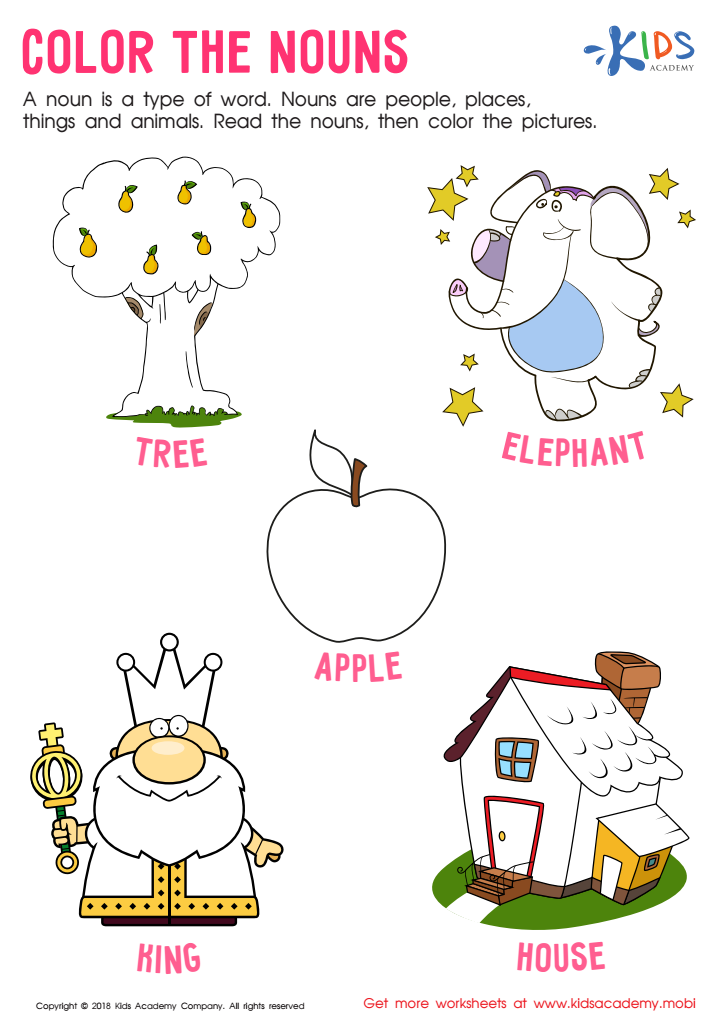

Color the Nouns Worksheet
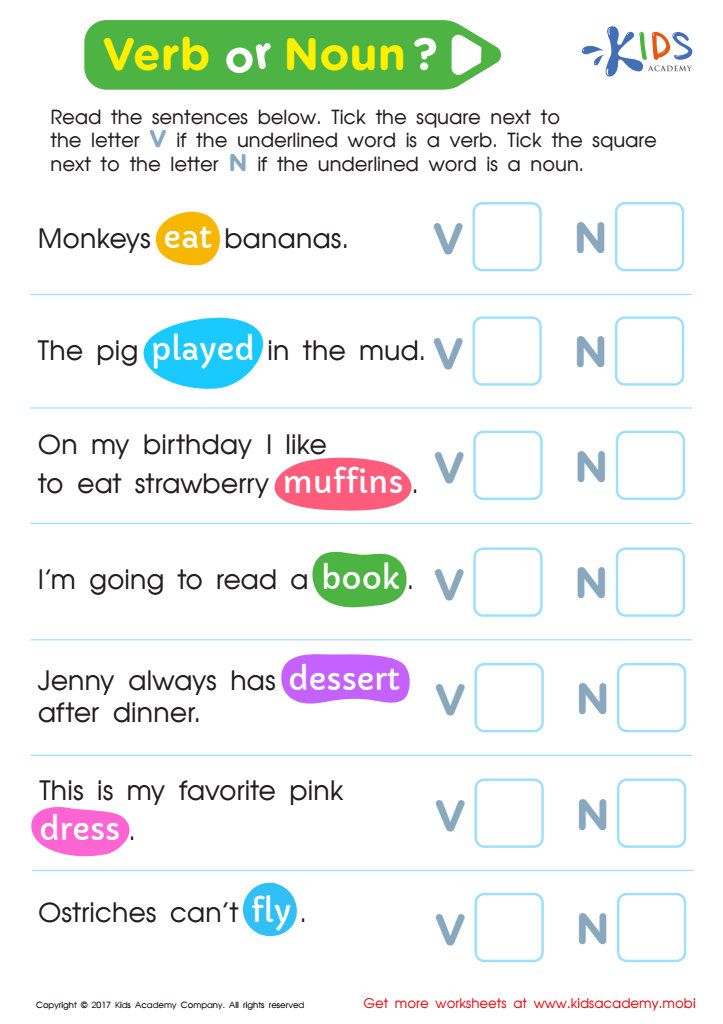

Verb or Noun Worksheet
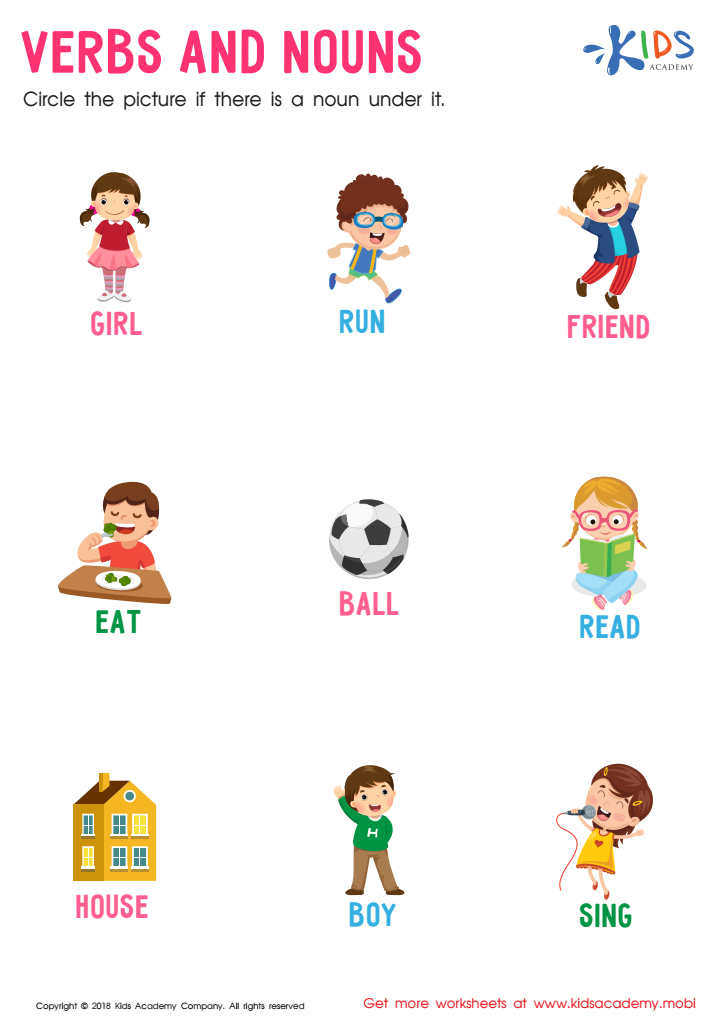

Verbs and Nouns Worksheet
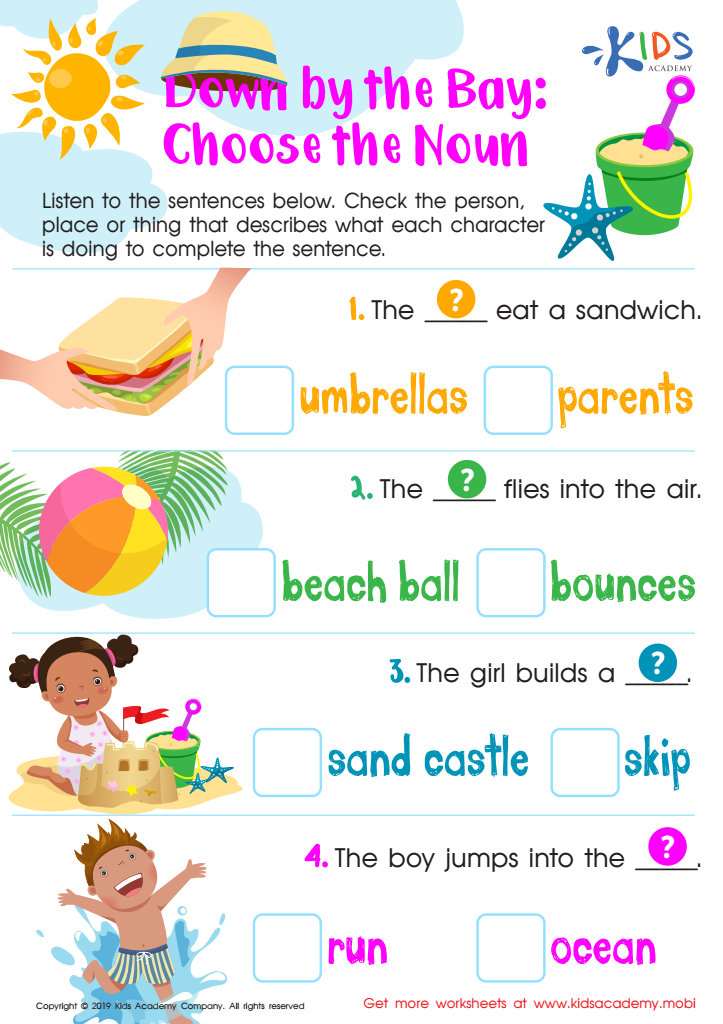

Down by the Bay: Choose the Noun Worksheet
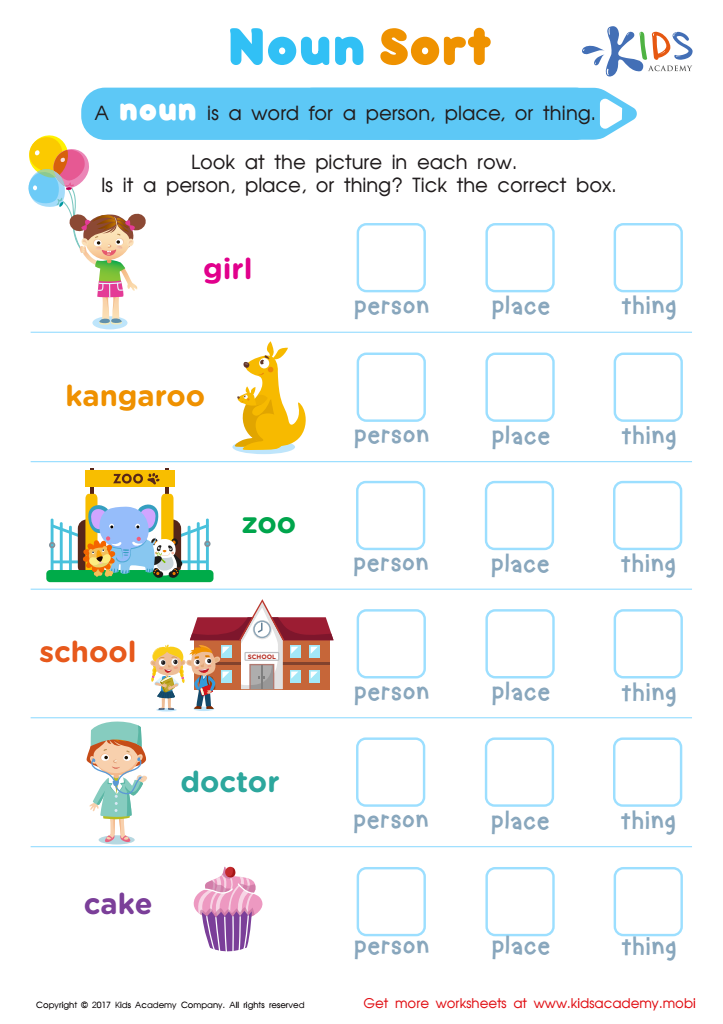

Noun Sort Printable
Noun identification is a foundational literacy skill in Kindergarten that significantly impacts early language development. For parents and teachers, understanding and emphasizing this aspect of learning is crucial. Nouns are the building blocks of sentences and help children understand and describe the world around them. When children can identify nouns such as "cat," "school," or "ball," they start recognizing and categorizing objects, people, places, and ideas, which enhances their cognitive development and vocabulary.
Early mastery of nouns sets the groundwork for other essential language skills, including reading comprehension and writing. It enables children to construct meaningful sentences and communicate effectively. Knowing nouns allows kids to distinguish between different parts of speech, leading to a better grasp of grammar and sentence structures as they progress in their education.
Moreover, identifying nouns can be a fun and engaging way to foster a love for reading and learning in young children. Activities like "noun hunts," picture labeling, and storytelling that focus on nouns can make learning interactive and enjoyable.
In essence, focusing on noun identification during Kindergarten not only supports immediate academic growth but also lays the foundation for successful language and literacy skills in later years. Therefore, parents and teachers should prioritize this fundamental element of early education.
 Assign to My Students
Assign to My Students



















